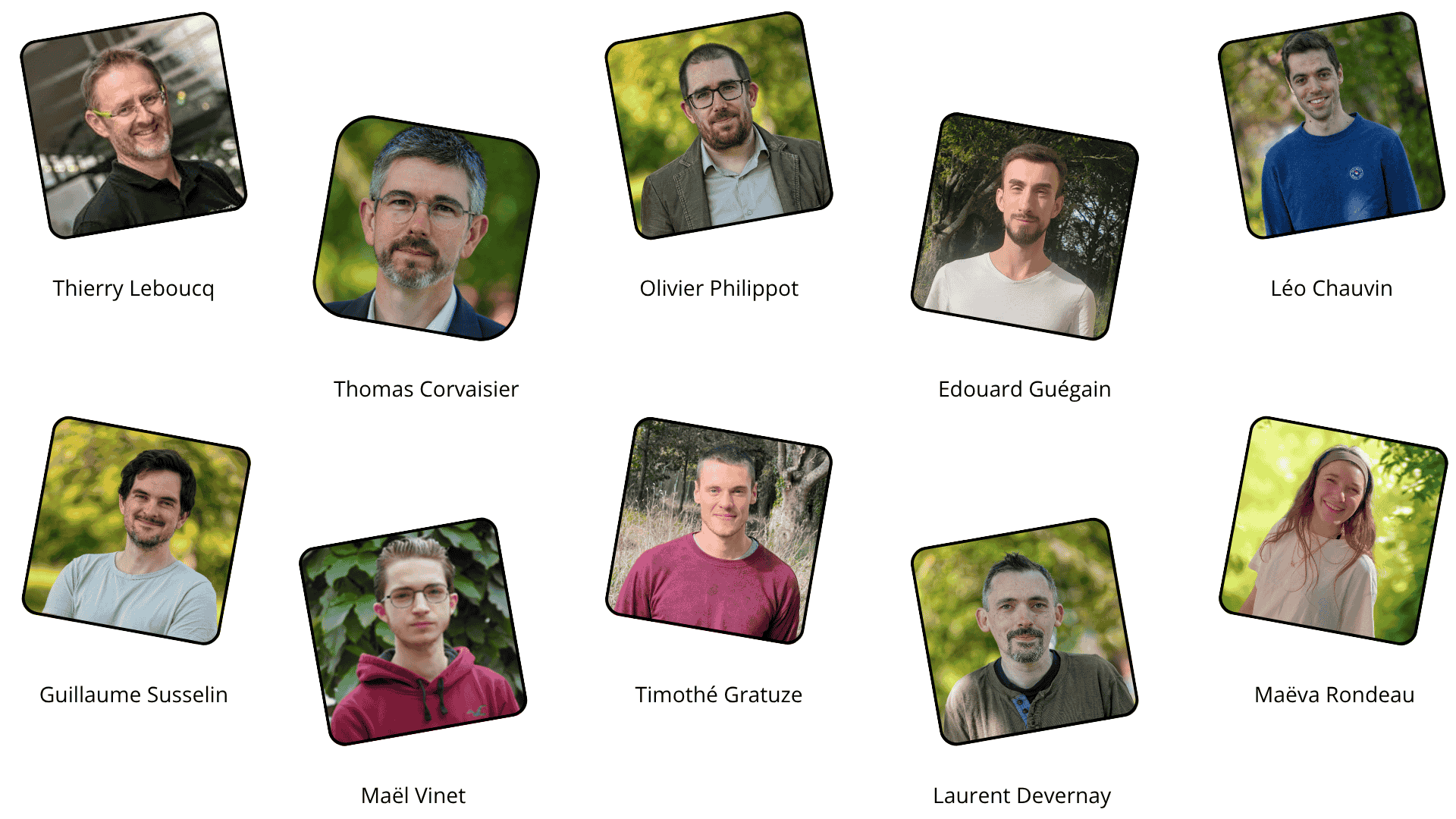Home » The Company
Created in 2010, Greenspector is a French pioneer in responsible digital technology. Greenspector responds to the ecological challenges of digital technology and provides solutions to make digital companies more sober, ecological, inclusive and efficient.
Aware of requiring efforts from everyone to change the world, we are committed to respecting the following values in our daily activities and beyond our products:
Greenspector has placed at the heart of its challenge on digital sobriety the ambition to measure digital services as accurately as possible and to develop robust, reliable methodologies with scientific rigor.
Beyond the expertise developed by each person in their profession, the strength of the collective is important, enabling mutual assistance, motivation and the collective enrichment of knowledge within Greenspector.
Our expertise in eco-design and energy efficiency of digital applications allows us to innovate to help our customers reduce their carbon footprint and optimize their products. We firmly believe in a sustainable digital future thanks to our know-how.
This question is legitimate, how does Greenspector contribute to the common good?
See for yourself the actions we undertake.
At Greenspector, our mission is to help our customers reduce the environmental impact of their digital services. We work on this every day, in a way that offsets our own impacts. To anchor this approach, we have included this in our statutes and are a mission-driven company.
Reducing the impact of digital technology requires awareness among all stakeholders in the sector. Raising awareness among as many stakeholders as possible also helps to accelerate the movement.
To do this, we regularly participate in interventions in schools or as part of meetups, conferences or Brown Bag Lunches, to present the subject to all digital profiles (PO, designer, etc.).
We are particularly keen to raise awareness among future stakeholders through courses in schools. This is why, several years ago, we co-founded one of the first eco-design competitions, the Green Code Lab Challenge, which was aimed primarily at students in higher education schools.
We have also chosen to raise awareness through articles on our blog and working groups or associations such as the Green Code Lab and the Green Lab Center.
We also participate in the common good by sharing part of our R&D.
Through this action, we want to improve the maturity of the sector and professionalize the field of measurement.
Our sharing is also done by integrating different actors in the reflections on our methodology.
To do this, we are part of the AFNOR working group, the group of experts on the eco-design of digital services of ISO/IEC, we also publish our methodology for more transparency.
We carry out public studies, in particular benchmarks of solutions or measurement of applications. Thus, we highlight the emission factors of certain uses.
Example 1: The impact of our uses in videoconferencing
Example 2: The impact of one hour of Netflix viewing
Measuring our clients’ applications and websites leads us to identify and recommend best practices. We contribute to and use existing reference documents (GR491, RGESN, 115 good web ecodesign practices, Designers Ethiques). In addition, our experience (particularly through measurement) allows us to support these recommendations with concrete feedback, or even to explore new avenues. We of course share them with our customers and integrate them into our benchmarks, our awareness campaigns and our blog articles.
Each employee is allocated time every week to monitor or participate in external projects related to Greenspector’s missions.
This is how we were able to contribute to the Web Almanac 2022 with the introduction of the Sustainability chapter.
We also participate in a W3C working group aimed at producing recommendations on digital sobriety applied to the web.
Our team is 100% committed and dedicated to meeting your needs

Would you like to join a meaningful technology project in a committed company? Greenspector is regularly sourcing new talent!
With Greenspector Studio we measure the energy efficiency of our application, used by 7 million customers every month, after each Build. This enables us to reduce our carbon footprint, improve our performance and strengthen our brand image.

François LANKAR
Applications Manager, Bouygues Telecom
Working on sobriety clearly makes for a better performing application.

Julien AZRIA
Digital Front Chapter Leader, Crédit Agricole Technologie & Services
With Greenspector Studio, testers can guide developers by identifying regressions or undesirable effects of a modification.

Florence GUERLAIS
Manager, Test & QA Center of Expertise, Air France